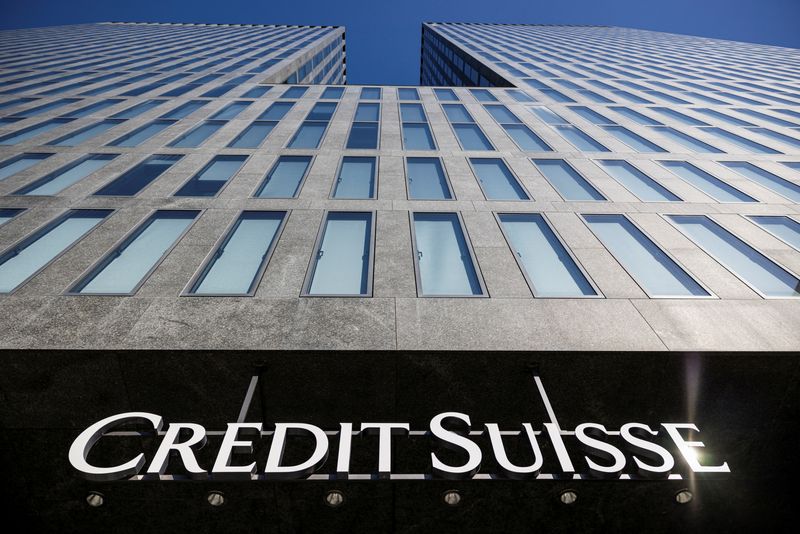ZURICH (Reuters) - Switzerland gave a rare glimpse on Friday into so far highly secretive procedures for its inquiry into Credit Suisse (SIX:CSGN)'s demise, saying it will examine the actions of state bodies dating back to 2015.
Credit Suisse, which was the country's second biggest bank, suffered years of scandals and losses before it had to be rescued in March in a state-engineered takeover by UBS.
A Swiss parliamentary committee said that it has completed the so-called "investigation concept" for the post mortem, dividing the time periods it will examine in the run up to the emergency Credit Suisse rescue.
The crisis has shaken Switzerland's financial establishment and led to the cross party inquiry, only the fifth time such a commission has been established in the country's modern history.
The first phase will cover the events before the middle of 2022, going back to 2015 when the Swiss cabinet submitted its first evaluation report on systemically important banks.
The actions of the government, financial markets watchdog FINMA and the Swiss National Bank as Credit Suisse's situation worsened towards the end of 2022 to March 2023 will also come under the microscope.
The so-called 'acute crisis' phase will cover from March 15 - when the bank suffered a liquidity shortfall as rattled clients withdrew cash - and March 19 when the government said it would support the UBS takeover.
The final time period will encompass the implementation of the emergency takeover.
The committee's actual investigation can now get underway, with it due to examine documents and holding hearings with representatives of the federal authorities, it said.
The committee has given little information on its activities, with all proceedings covered by strict confidentiality laws.
On Friday it said it would not give details of which individuals it would speak with or what documents would be examined, but said it expected to complete the work by the end of February 2024, before drawing up its final report.

The committee also said it would call in outside experts to clarify questions on how financial market supervision legislation was implemented and how Swiss rules compared internationally.
It would also award an external mandate to analyse how the problems at Credit Suisse developed over the past few years, although it would not assess the bank's management, as this was outside its remit.